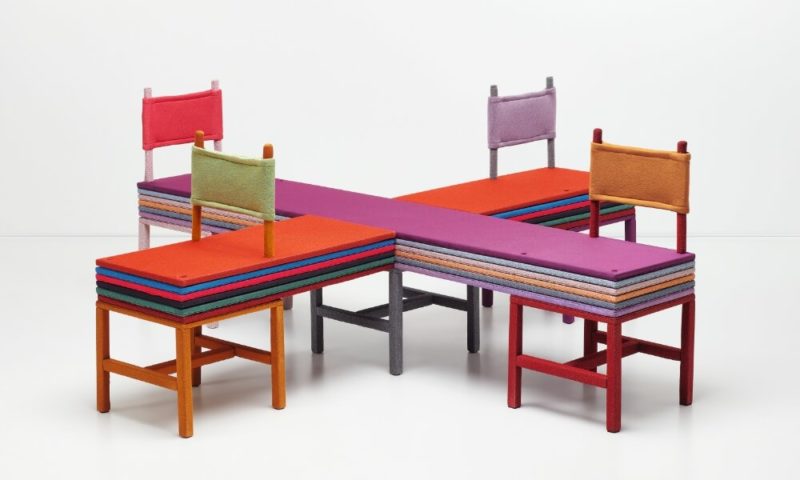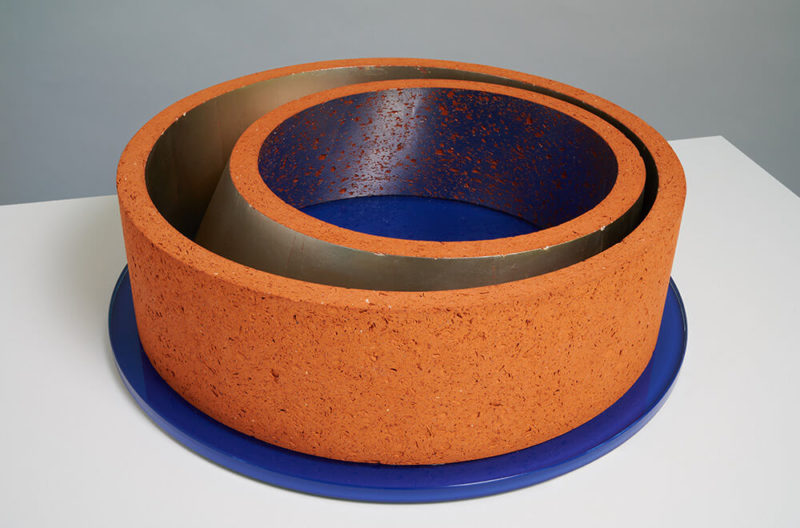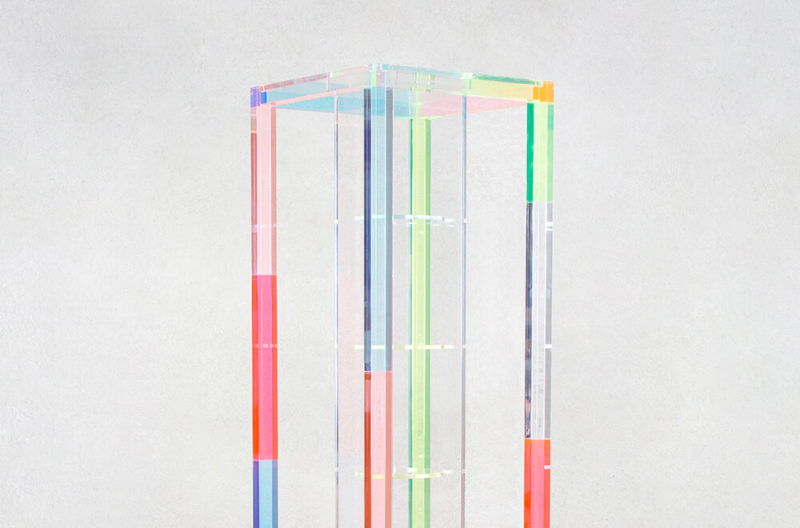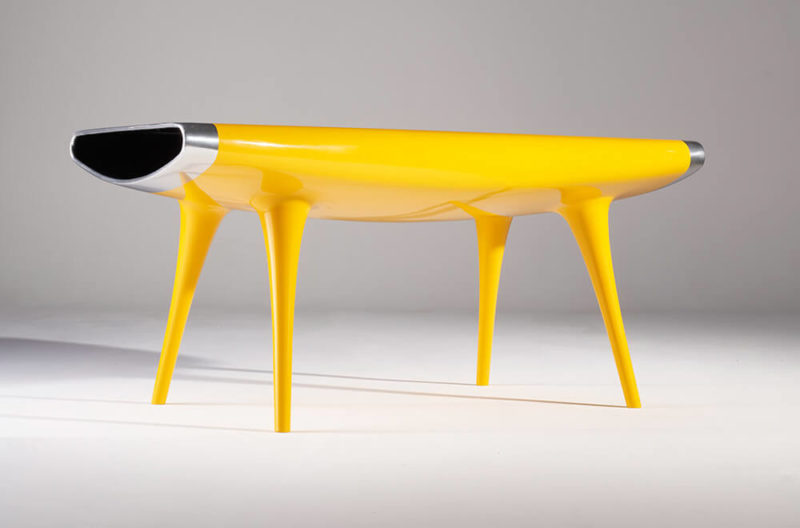‘Circula’, 2020
Studio Rygalik
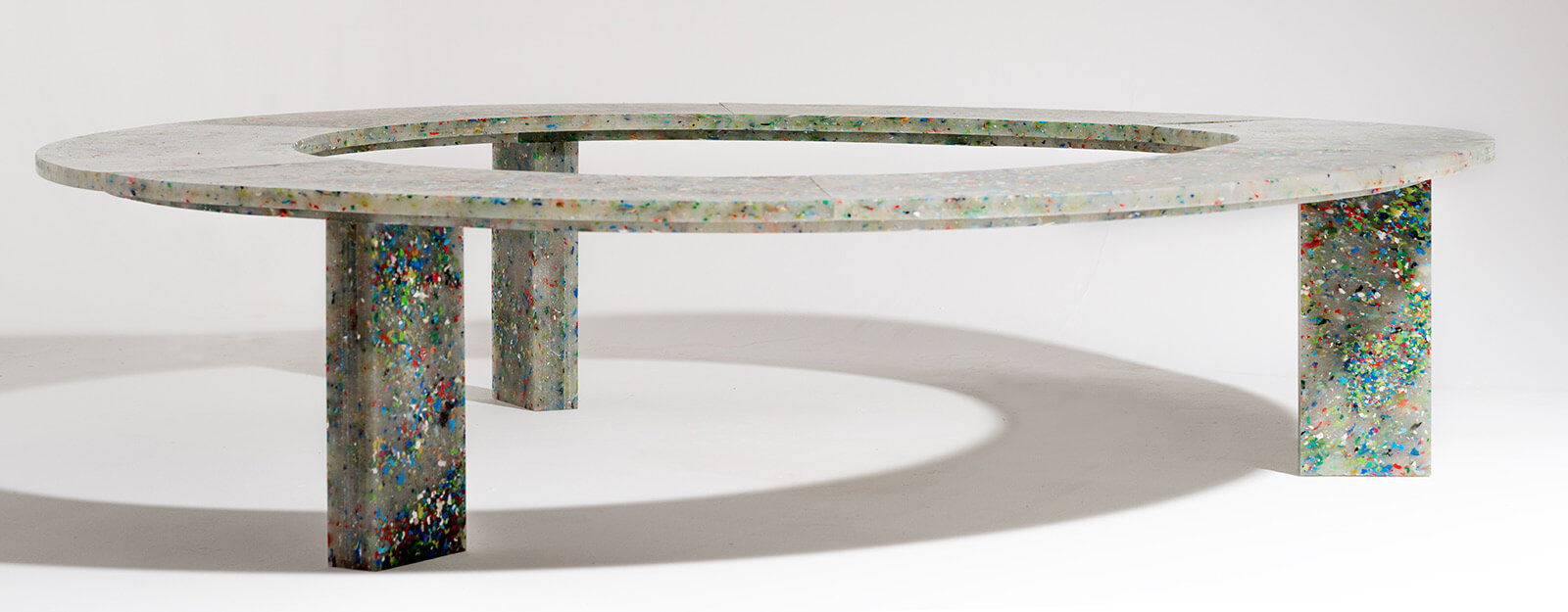
Studio Rygalik, ‘Circula’, 2020
COURTESY: Studio Rygalik
ON 27TH NOVEMBER, Italy lifted its temporary lockdown. In Milan, Rossano Orlandi Gallery will once again open its doors. One new object in amongst the treasure trove of contemporary design is Polish designer Tomek Rygalik’s joyful ‘Circula’ bench. This was first presented in the exhibition We Are Nature, part of “Ro Guiltlessplastic 2020”, the international project curated by Rossana Orlandi at the Leonardo Da Vinci National Museum of Science and Technology in Milan, in September. It is made from a mixture of recycled plastic remains, the colourful fragments still visible, and constructed of three interlocking modules, held together by an integrated, hidden locking mechanism. It offers us a perfect geometric figure, the circle – a symbol of resolution and harmony that cancels out hierarchies and divisions.
Rygalik is a leading Polish industrial designer, teacher and artistic director. He has spanned the world, studying Architecture at the University of Łodz, before earning a PhD in Industrial Design at the Pratt Institute of New York, and then, in 2003, studying for an MA at the Royal College of Art in London. He set up Studio Rygalik with his partner, Gosia Rygalik, in 2012, producing designs for leading international companies, and also runs the highly competitive design studio PG13 at the Academy of Fine Arts in Warsaw. He says, “Studio Rygalik promotes a sensible and holistic approach to design. Underpinning our work is an authentic commitment to sustainability and the responsible consumption of material goods and the resources of our planet.”
‘Circula’ was commissioned by ECO-Solidarity – a collaboration between the Polish Cultural Institute in New York and Rygalik’s studio – and it is in every way circular. It was designed to encourage social interaction among children in schools; it is made of recycled plastic packaging, sustainably sourced wood or phosphate steel, to stimulate conversation about the relative virtues of these different materials in the circular economy; and for each piece purchased, another is donated by the company to an organisation that requests one for social or charitable purposes. And then, if the buyer is no longer interested in the bench, the company itself will take it back and return it to “circulation” through its own network. As political and health crises have deepened across the globe, this apparently simple, beautiful object has become a statement not just of values but also of hope: “Human beings are not intended to be a solitary species: we are social animals,” says Rygalik, “Today everyone’s talking about distancing – but there will come a moment dedicated to recovery from all of this, both physically and relationally.”




